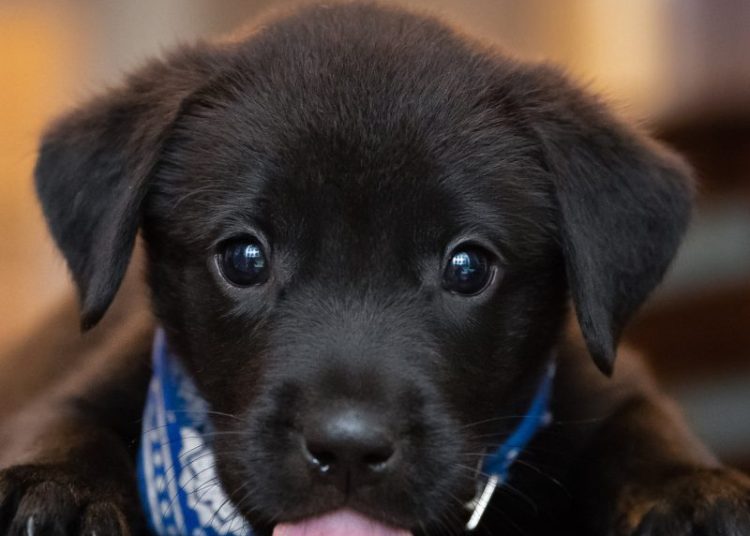Puppy – Many people are surprised to discover that naming a dog is harder than it seems. It’s not just a matter of choosing something cute, fun or clever; there’s science behind the process as well. After all, you’ll be living with this name for several years, so it needs to be one that suits your dog and its personality—not to mention one that won’t get on the nerves of any other members of your household! Here are some tips for coming up with the perfect name:
Get the whole family involved.
If you’re getting a puppy as a gift, it will be important that everyone who will be interacting with the dog has input on its name. Be sure to include everyone in the family, but don’t let them make the final decision.
It’s also important to realize that there is no one right way to pick out the perfect name—you should choose something that feels right for you and your puppy! You might want something traditional or silly; either way, at least make sure it’s not offensive or embarrassing for any of those around them (or themselves).
Avoid human names.
You don’t want to give your dog a human name, do you? Of course not! That would be silly. Dogs are their own species and have their own traits and characteristics, so it only makes sense that you should choose a name for them that reflects their unique nature. In order to help you make an informed decision about what kind of name would suit your pup best, here are some common mistakes to avoid when choosing one:
- Names that sound too human (e.g., “Bob”)
- Names with the same spelling as a human name (e.g., “Barb”)
- Names that sound like a human name (e.g., “Beth”)
- Names that are too similar to a human name (e.g., “Betty”)
Steer away from popular dog names.
There are several reasons why you shouldn’t go for the most popular dog names. For one thing, every dog who has a name like “Loki” or “Bandit” will inevitably be compared to other dogs who have the same names. This can create unnecessary feelings of competition between your pup and his peers, which could lead to issues down the line. Another reason why it’s best not to pick a popular name is that it may make your puppy seem unoriginal—and nobody wants their pet to feel like a copycat!
If you do decide on an uncommon name for your puppy (which I highly recommend), don’t just choose something random or whimsical just because it sounds cool; instead look at potential meanings behind each word so that everyone understands what they’re saying when mentioning your pet’s moniker in conversation with others outside of the family circle…
Know your dog’s breed and personality.
Once you know the personality of your puppy, it’s time to choose a name. When choosing a name for a dog, it’s important that it matches their personality. For example, if your puppy is shy and timid, then it makes sense not to give them an aggressive or intimidating name like “Killjoy” or “Bloodthirsty”. On the other hand, if they are boisterous and friendly, then those names might work just fine!
Here are some examples of popular dog names with personalities in mind:
- A sweet name for a little guy that loves everyone he meets!
- This is perfect if your pooch has been around since birth.
Take inspiration from movies or books.
You can also take inspiration from movies or books you have seen together as a family. Your dog’s name could be inspired by a character in the movie, like how my dog’s name is inspired by the children’s book “Where The Wild Things Are.” Or it could be taken from something that happened during a movie you watched together, like how my other dog was named after a character in the movie Toy Story who had an obnoxious voice.
Another fun way to choose your puppy’s name is by thinking about his personality and making it fit with him! If your puppy loves attention, maybe he should have a grandiose name like Sir or Madame? If she likes to play rough and tumble games she might be named after an action hero (like Rambo). And if he is super sweet and gentle consider names such as Angel or Sunshine–or even Cupcake!
Be wary of similarly named dogs or people in the home.
As you’re considering names for your puppy, be wary of similarly named dogs or people in the home. If you have another dog in the house with a similar sounding name, it’s best to avoid it as well. For example, if there are two dogs named Buddy and yours is called Buddy too, all three will be confused when they hear their master call them all by the same name.
The same holds true for naming your dog after someone in your family—for instance, don’t name him John if his owner’s name is John.
Make sure it’s easy to pronounce.
Make sure it’s easy to pronounce.
One of the most important things to consider when choosing a name is how easily others will be able to say it. If you have a hard time pronouncing your own dog’s name, then chances are your pup won’t know what you’re saying either! Make sure that your pet’s name is something that everyone can pronounce without difficulty.
Don’t pick an obscure word or phrase for their name; this will only make them harder to train and confuse other people when they meet him or her.
Do your homework to avoid unfortunate meaning.
If you’re looking for a name that means something, keep in mind that your pup’s name will be with them for life. If you don’t like the meaning of a particular name, or if it seems too common for your taste, re-think its appropriateness (or at least consider whether it might be suitable for another member of the family).
A dog’s name is usually short and simple; try not to choose one so long that it won’t fit on their tag! Also keep in mind that some dogs already have names—and if yours does as well as yourself or anyone living with you, make sure they don’t have similar names.
Keep it short and simple, but not too short and too simple.
There are two things to consider when choosing a name: how short it is and how simple it is. Keep your puppy’s name short and simple, but not so short and simple that you have trouble pronouncing it or spelling it. Avoid names that are too long or difficult to pronounce, like “Hercules,” which is spelled H-E-R-K-U-L-E-S but pronounced HERCULES (as in the Greek hero).
Also avoid names that are hard to spell correctly, as these can lead to confusion between other dogs with similar sounding but different spellings (for example, Boomer vs Boomar).
Naming a puppy might be harder than you originally thought!
Naming a puppy might be harder than you originally thought!
I know what you’re thinking: “But I want to name my puppy now, before it’s even born.” Or maybe, “I already have the perfect name for my dog in mind.” Or maybe even, “I’m just going to see how things go and we’ll figure out what his name is later on.” Whatever your stance on this matter is, there are some basic questions that should be considered as part of the naming process: Is this name appropriate for my breed? Does this fit into our family’s lifestyle? Will this work with our other pets’ names? Am I ready for people to make fun of me when they hear my puppy’s name? Yes, these things may seem trivial at first glance but they will definitely become important when you’re considering adopting a dog or naming one yourself!
Conclusion
We hope that this article has given you some ideas for choosing the perfect name for your puppy! Remember, it’s not just about finding something cute or funny—it should feel like a good fit for both of you. And if it doesn’t feel right after time goes on, don’t be afraid to change things up again!
Read More:

























